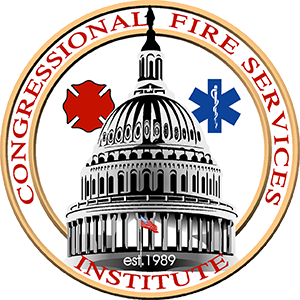IAFF Remarks Regarding Reauthorization of AFG, SAFER, and the U.S. Fire Administration
Dave Hoagland, President, Washington DC Firefighters Association, Local 36 of the International Association of Fire Fighters
Good afternoon– my name is Dave Hoagland and I serve as the President of the Washington DC Firefighters Association, Local 36 of the International Association of Fire Fighters. I’m proud to represent both Local 36 and the entire IAFF today.
As you’ve heard from the other speakers, the AFG and SAFER grant programs are the two largest forms of federal support for fire departments.
Fire fighters serve in a uniquely dangerous job. We routinely respond to inherently dangerous calls where lives are at risk. When seconds count, the public deserves to know that trained and prepared fire fighters are standing ready. Studies have repeatedly shown that safety for both the public and fire fighters increases when we have engine and truck companies with at least four fire fighters.
The SAFER grant program is a vital step to ensuring our trucks are staffed, and our residents are protected. No jurisdiction should be forced to let 911 calls go unanswered or expect fire fighters to respond to calls without their brothers and sisters. SAFER is an especially important tool to make sure we don’t lose fire fighters during economic downturns.
It is also important to recognize that fire fighters can’t work without the tools, vehicles, and equipment we need. Far too many fire fighters around the nation are forced to make do with failing trucks, antiquated safety equipment, and broken tools. AFG grants are an important complement to SAFER and make sure that we have the tools we need to serve our communities.
Since 2016, the SAFER and AFG programs have given the District of Columbia more than $10 million to ensure our residents are protected and that our fire fighters have the staffing and tools needed. There are residents of Washington, DC alive today because a SAFER-funded fire fighter or an AFG-funded truck responded to their call.
I also want to point out that the number one enemy, and killer, of fire fighters is cancer. From the smoke we breathe to the gear we wear, we’re surrounded by carcinogens. AFG’s Fire Prevention and Safety Grants fund critical research into fire fighter cancer and how we can protect ourselves.
The US Fire Administration is also our biggest advocate in the federal government, and fights relentlessly to help us stay safe on the job and protect the public from fires.
Sadly, these advancements in staffing, equipment, research, and public service are at risk. The AFG and SAFER programs will close next year unless Congress acts.
IAFF members in DC and across the nation are proud to answer our neighbors’ calls. But if we’re not there to answer the call – there is no alternative to 911. Congress’ inability to reauthorize these programs directly jeopardizes the lives of fire fighters and the public as a whole.
It’s time for Congress to pass the Fire Grants and Safety Act.
